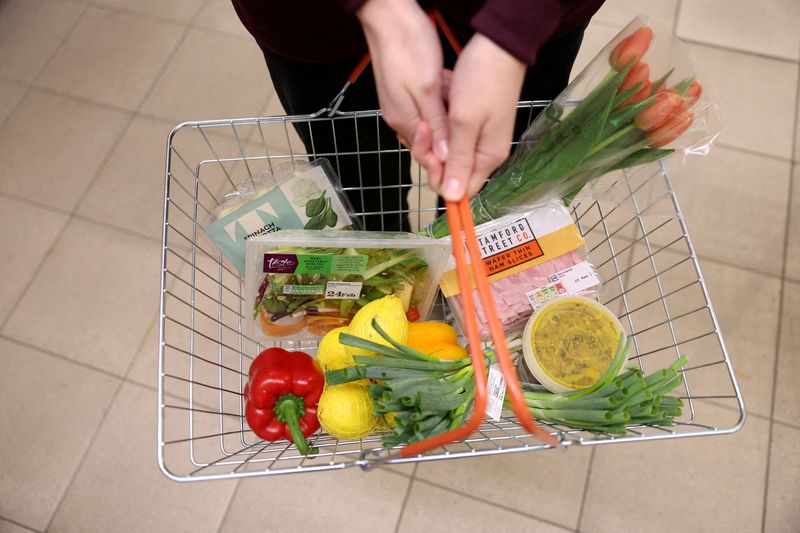By David Milliken and Suban Abdulla
LONDON (Reuters) – British inflation returned to its 2% target in May for the first time in nearly three years, official figures showed on Wednesday, as the economic effect of the COVID-19 pandemic and Russia’s full-scale invasion of Ukraine faded.
The fall in inflation will be welcomed by both Prime Minister Rishi Sunak and the Bank of England – but likely has come too late either to turn around Sunak’s fortunes at next month’s election or to prompt a BoE rate cut on Thursday.
May’s data showed services price inflation – which the BoE thinks gives a better picture of medium-term inflation risks – was 5.7%. That was down from 5.9% in April but not as big a drop as the 5.5% that economists had expected.
The drop in annual consumer price inflation from April’s 2.3% reading was in line with economists’ median expectation in a Reuters poll and marks a sharp decline from the 41-year high of 11.1% reached in October 2022.
The fall has been sharper than in the euro zone or the United States, where consumer price inflation in May was 2.6% and 3.3% respectively, belying concerns a year ago that British inflation was proving unusually sticky.
Even so, consumer prices are up around 20% over the past three years, squeezing living standards and contributing to the unpopularity of Sunak’s Conservatives, who are around 20 points behind the opposition Labour Party in opinion polls.
The BoE has said a return of inflation to its target is not enough on its own for it to start cutting interest rates.

While most economists polled by Reuters think it will start to cut interest rates from its 16-year high of 5.25% in August, financial markets think a first move is more likely in September or October – and see just a 10% chance of a cut this week.
The most recent fall in inflation was driven by a cut in regulated household energy bills in April – the effect of which will fade later in the year, when the BoE forecasts inflation will rise again.